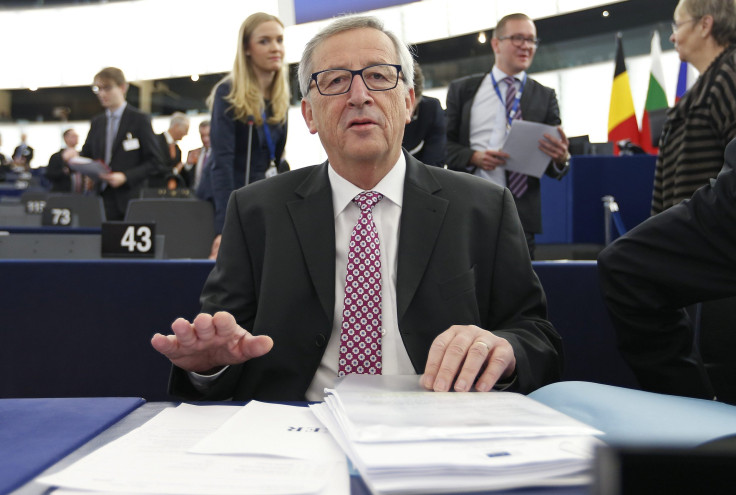EU's Jean-Claude Juncker Presents Massive $380B Investment Plan To Boost Growth

Jean-Claude Juncker, president of the European Union's (EU) executive branch, on Wednesday presented a 315 billion euro ($380 billion) plan to increase investment in the European bloc and spur economic growth. Of the planned investments, 21 billion euros will be seed money from European institutions, reports said, citing Juncker.
Juncker said that the investment plan will be based on EU guarantees aimed at encouraging private investors to pour money into projects in education, transport, the digital economy and the environment, according to The Associated Press (AP). The European Investment Bank will be the “prime mover” for getting the seed money for investments in the next three years and, according to Juncker’s estimate, 15 euros will be generated for every euro invested in the plan.
“Europe needs a kick-start and today the Commission is applying the jump leads,” Juncker said, according to Reuters, adding that incurring public debt was not an option. "We don't have a money-printing machine. We need to attract money to make it work for us."
The plan, which will be discussed in detail by the 28 members of the EU at a Dec. 18-19 summit, is not expected to rely on creating more debt, which currently stands at about 90 percent of the region’s gross domestic product.
Juncker, whose speech comes a day after Pope Francis said the EU was viewed outside the bloc as "elderly and haggard," also said that the EU was stuck in an “investment trap” because private investors were reluctant to bet on the region. But, guarantees from the seed fund would help absorb the initial risks for major projects that could boost the region’s infrastructure, Juncker said, according to Reuters.
"We are offering hope to millions of Europeans disillusioned after years of stagnation," Juncker told the European Parliament in Strasbourg, France, according to AP, adding that investors currently "lack confidence, credibility and trust."
© Copyright IBTimes 2024. All rights reserved.




















